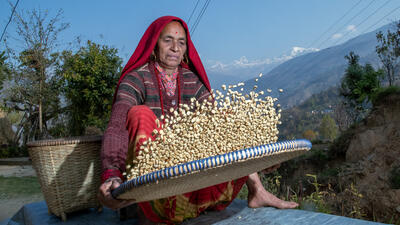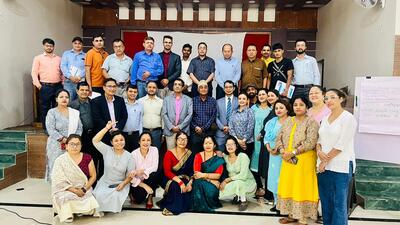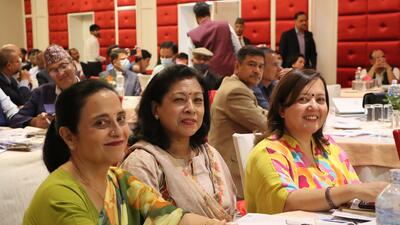
Investing in sustainable agriculture, a stable income for farmers
Evelyn Seltier of Trade Forum talked to Dinesh Prasad Parajuli, Chief Executive Officer of the Agro Enterprise Center in Nepal and the Federation of Nepalese Chambers of Commerce, about how the partnership with a banking institution has impacted the lives of small-scale farmers in his home country.
But for “green financing” to truly scale the impact in farming communities across Nepal, more needs to be done: from improving rural infrastructure, to partnerships and policy regulations. Read more below.

Green financing in Nepal plays a crucial role in addressing environmental challenges, reducing carbon emissions, and promoting sustainable economic development.
It addresses various financial mechanisms and instruments that support environmentally sustainable and climate-resilient activities/initiatives. It promotes investments in renewable energy, energy efficiency, sustainable agriculture, waste management, and other activities that contribute to reducing carbon emissions and conserving natural resources.
The Government of Nepal has introduced policies and regulations that support renewable energy initiatives like the Alternative Energy Promotion Policy and the Climate Change Policy. These policies create a conducive environment for green investments. Nepal has significant potential for renewable energy sources.
So far, several financial institutions in Nepal have been providing small-scale green loans to support initiatives that include organic farming and sustainable agriculture practices.
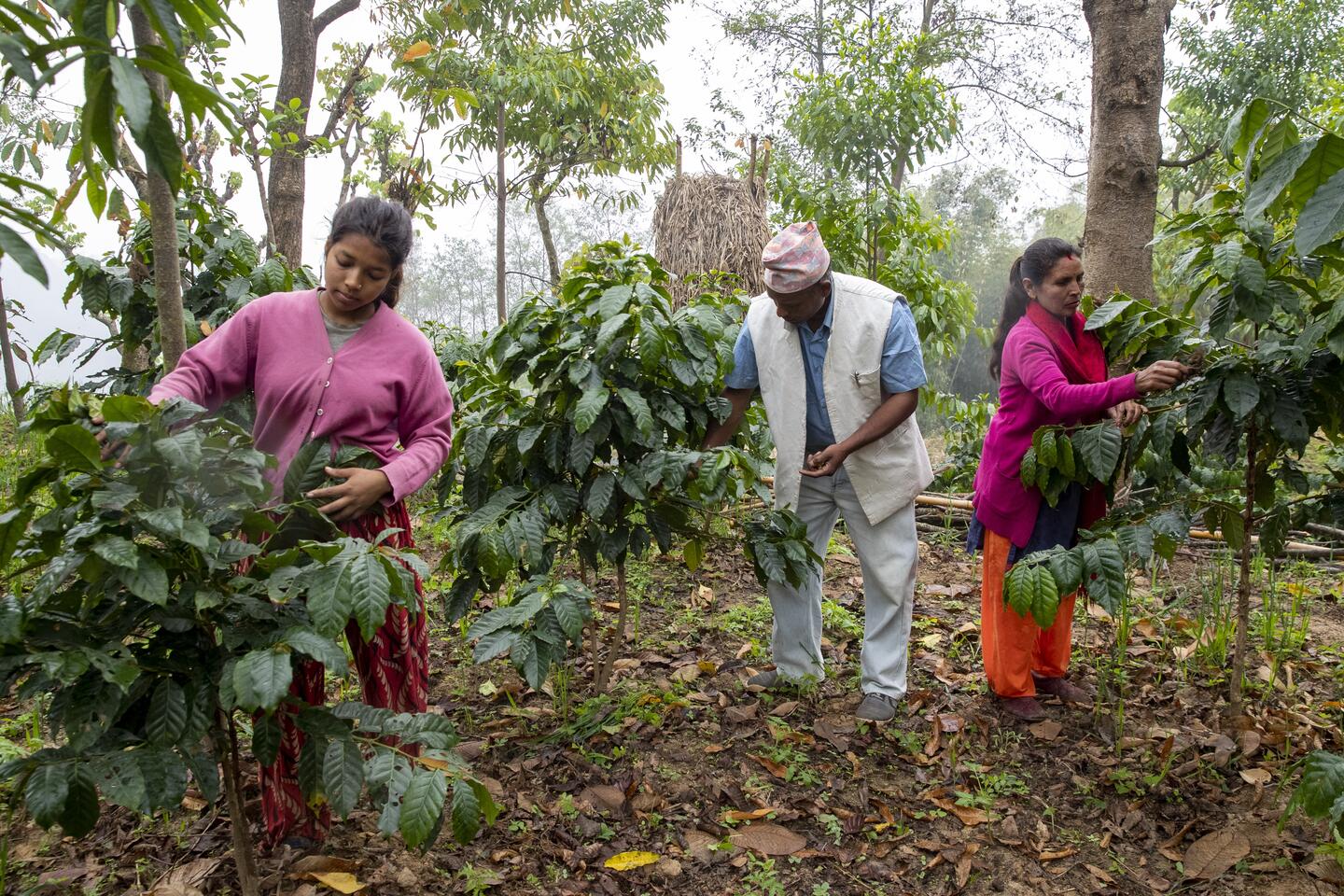
Nepal’s Agro Enterprise Center (AEC) is encouraging the private sector as well as farming communities to apply for the green financing schemes offered by NMB Bank Limited. Moreover, we are supporting farmers with the required documentation to apply for the bank’s green loans.
So far, the bank has mobilized NRS. 120 million (equivalent to around $902,620) for 25 agribusinesses under the green financing scheme. This helps accelerate the green economy at community level.
Thanks to employing sustainable practices, the quality of the agricultural produce has increased, which means farmers can ask for higher prices in various markets which ultimately improves the income and livelihoods of small-scale farmers.
Moreover, the shared sustainable farming practice has a positive impact on the community and improves cooperation among its members.
Finally, economic activities are increasing as the bank’s investment creates employment opportunities.
The Federation of Nepalese Chambers of Commerce serves as a catalyst in this regard by advocating for favorable policies, providing information and education, fostering networks, and promoting sustainable practices among the members.
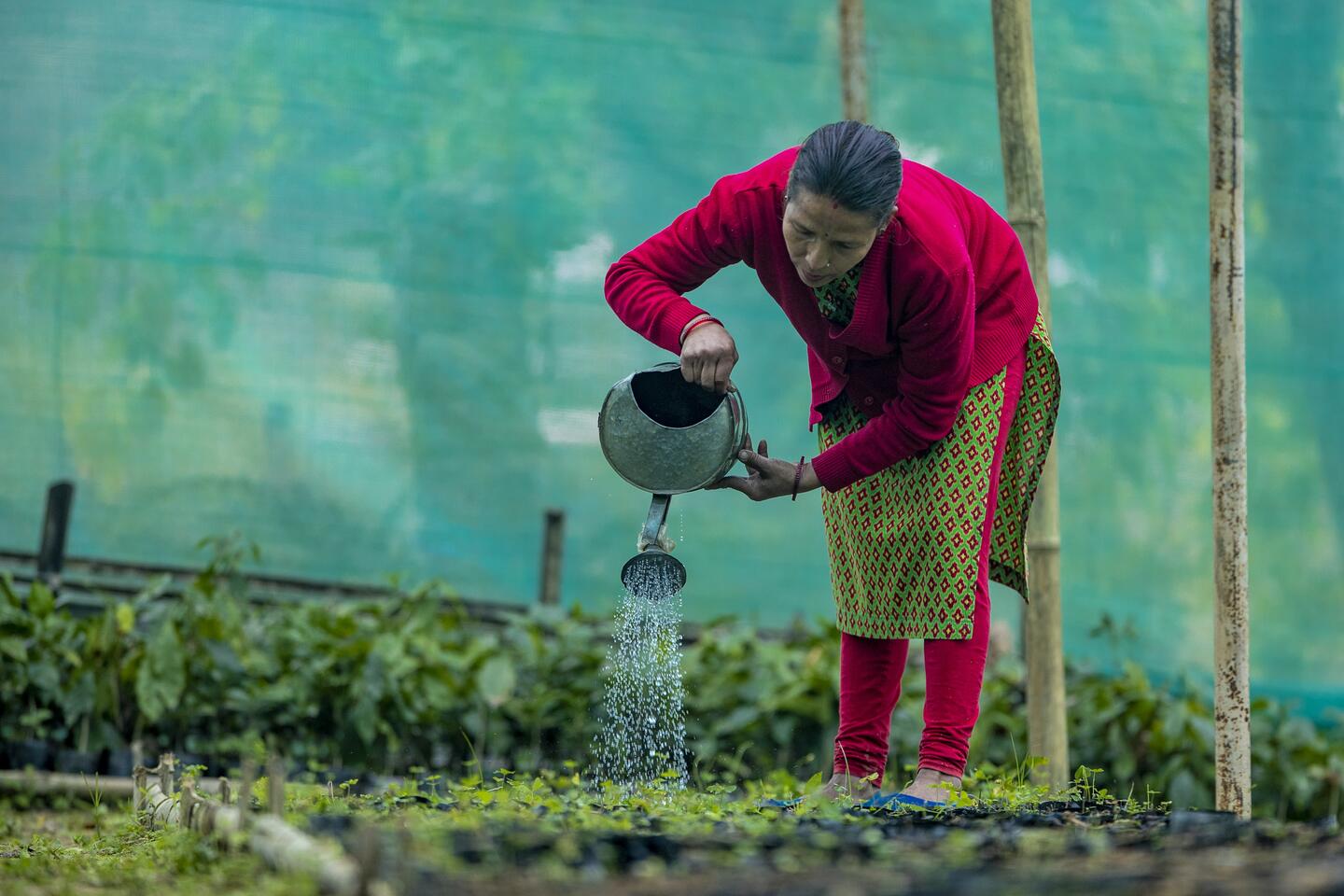
Improving the situation of Nepalese farmers who are practicing sustainable agriculture, and helping them in accessing markets involves a multi-faceted approach that should address:
- Improving rural infrastructure, including roads and storage facilities- to reduce post-harvest losses and enable faster market access.
- Facilitating access to finance.
- Training on technologies and improving skills.
- Subsidy and support packages.
- Improving market linkages.
- Supporting value addition activities.
- Enabling product diversification knowledge transfer.
The public as well as the private sector must work together to achieve these points. The Government should create a conducive business environment through policy formulations, infrastructure development, and support packages.
At the same time, the private sector should increasingly invest in sustainable agriculture, while multilateral and bi-lateral organizations like ITC should continue to provide technical support.




.jpg?itok=ZigzCLFo)

